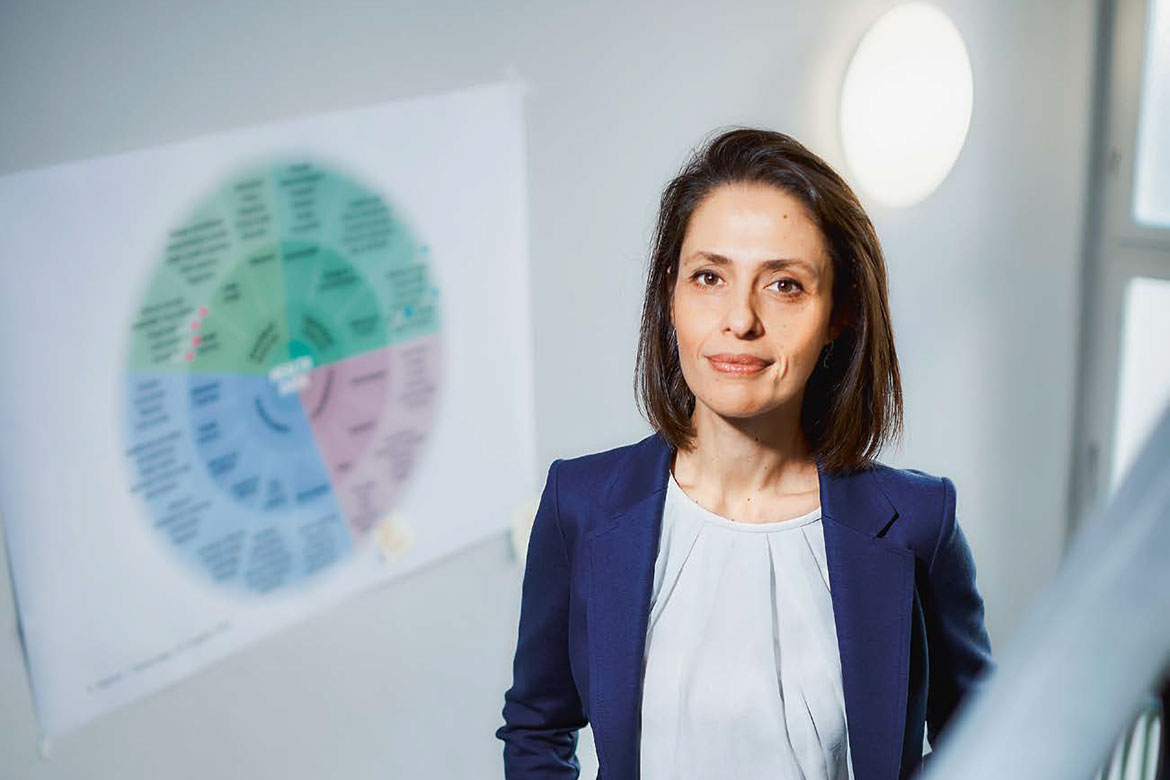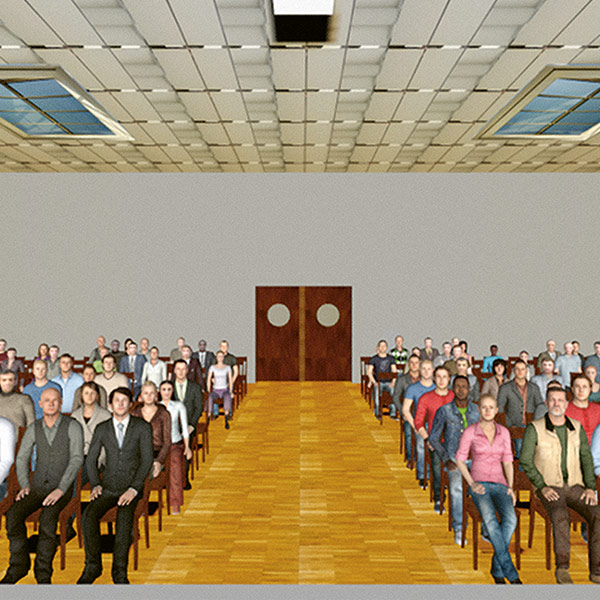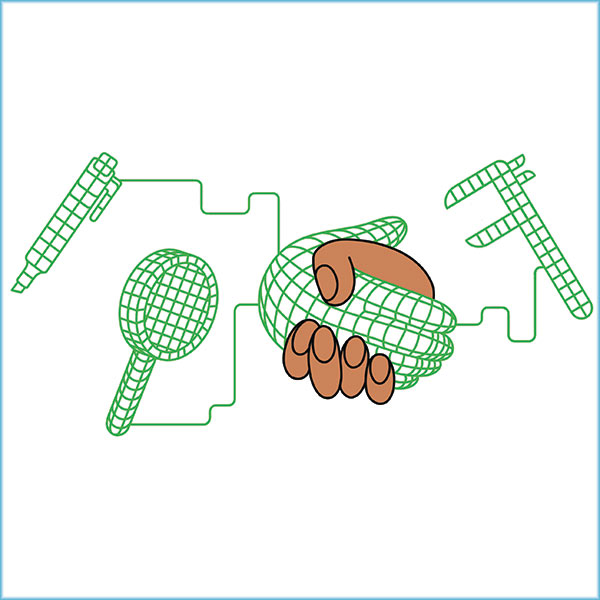Experimenting with ideas
The secrets of your genome can be decoded and uploaded with one click. At her lab, bio-ethicist Effy Vayena takes on the tough questions: Who should be able to use that information, and how?
 Most of Effy Vayena’s adult life has been spent far from the place where she grew up on the Greek island of Lefkada. After earning her Bachelor’s degree in history in Athens, she embarked on a career path that would take her from the US to the UK, Myanmar and Mongolia. Now based in Zurich, she still manages to get back to Lefkada every summer to visit her family, and do some water-skiing with her two daughters. “It is so beautiful and sunny there – I think growing up in such a sunny place, you are naturally filled with optimism”, she says.
Most of Effy Vayena’s adult life has been spent far from the place where she grew up on the Greek island of Lefkada. After earning her Bachelor’s degree in history in Athens, she embarked on a career path that would take her from the US to the UK, Myanmar and Mongolia. Now based in Zurich, she still manages to get back to Lefkada every summer to visit her family, and do some water-skiing with her two daughters. “It is so beautiful and sunny there – I think growing up in such a sunny place, you are naturally filled with optimism”, she says.
Optimism would seem to be a beneficial character trait for someone whose job is to develop answers to some of the most difficult ethical questions facing society today. As a professor of health policy and founding head of the Health Ethics and Policy Lab at the University of Zurich, Vayena studies the regulatory challenges that accompany advances in health and medical technology.
She studies the privacy, fairness, and freedom of choice issues that today’s regulatory frameworks are simply not equipped to address. Genomics and gene sequencing, for example, allow us to know more about patients’ futures than ever before. “But what information should we share with them, or with others? Should this information remain private or be used for the greater good?” Vayena asks.
Designing research (and cars)
Vayena hasn’t always been in academia. She first came to Switzerland in 2000 to work for the World Health Organization (WHO) in Geneva.
“I started out studying history and the history of ideas, but I became more interested in the controversies I encountered in ethics and medicine – especially those relating to assisted reproduction and genetics”.
At the WHO, Vayena researched reproductive health in developing countries, focusing on infertility. While not usually associated with developing nations, many of which suffer from overpopulation, infertility impacts health and wellbeing in these regions just as it does in developed countries, Vayena explains. She studied how new reproductive technologies could alleviate suffering in these regions, and whether such technologies have a place when health resources are limited.
As part of this work, Vayena travelled to support local groups in implementing ethical research programmes and practices. She says her experiences left her in awe of the researchers she met. “When I was in Myanmar, I was so impressed by how candidly they spoke about their challenges, their lack of funding, the ethical norms they valued, and human rights”, says Vayena. “I was inspired by their resilience and determination to improve their research and their lives, and to defy obstacles. They would build their own cars to get around – I rode in one of them”.
Following the birth of her first daughter, Vayena decided in 2008 to return to academia via a habilitation programme in bioethics and health policy at the University of Zurich.
Citizen science: a democratic study
Another area of interest for Vayena is citizen science. Although the movement isn’t new, smartphones and the Internet have allowed participants to share more data more quickly and more widely than ever before. For Vayena, Switzerland is an ideal place to study citizen science questions, such as: how can we protect participants and their data, and engage everyone in decisions about science?
“It’s really interesting for me to be doing my research in Switzerland, because of its tradition of direct democracy”, she says. “I’m interested in learning how we can create new norms to help manage problems of ethics, health and data. And how do we create norms? Ideally, through reflection, democratic participation and deliberation”.
Vayena can now participate in such deliberation, having obtained Swiss citizenship last year. As luck would have it, her first trip to the ballot box included a vote on the regulation of pre-implantation genetic diagnosis – a controversial procedure that involves the genetic testing of human embryos in vitro, before they are implanted in a woman’s uterus. Vayena voted in favour of revising Swiss law to allow the procedure, which was the choice accepted on 5 June 2016.
A democratic model also prevails in Vayena’s lab: “I like to create an informal setting without too much hierarchy; we work hard and laugh a lot”, she says. “In my lab we don’t use pipettes. I like to think of it more as experimenting with ideas”.
Next year, Vayena and her team will begin work on an SNSF-funded project combining big data, ethics and health. Vayena is also at the forefront of the new Swiss Personalized Health Network (SPHN), a CHF 70-million National Support Initiative coordinated by the Swiss Academy of Medical Sciences and designed to accelerate personalised health through harmonised frameworks for medical data in Switzerland – and potentially beyond it.
And if she still has time after that? Vayena says that long-term, she’d like to study the influence of artificial intelligence on medical research and health care.
But for now, she’s content to find spare time to spend with her daughters.
“I talk to them a lot. They’re growing up trilingual – speaking German, Greek and English – so I answer a lot of questions! And every summer we go back to Greece. They are better on the Swiss ski slopes than me, but at least I can hold my own on water skis”.
Celia Luterbacher is a journalist for swissinfo.ch.




